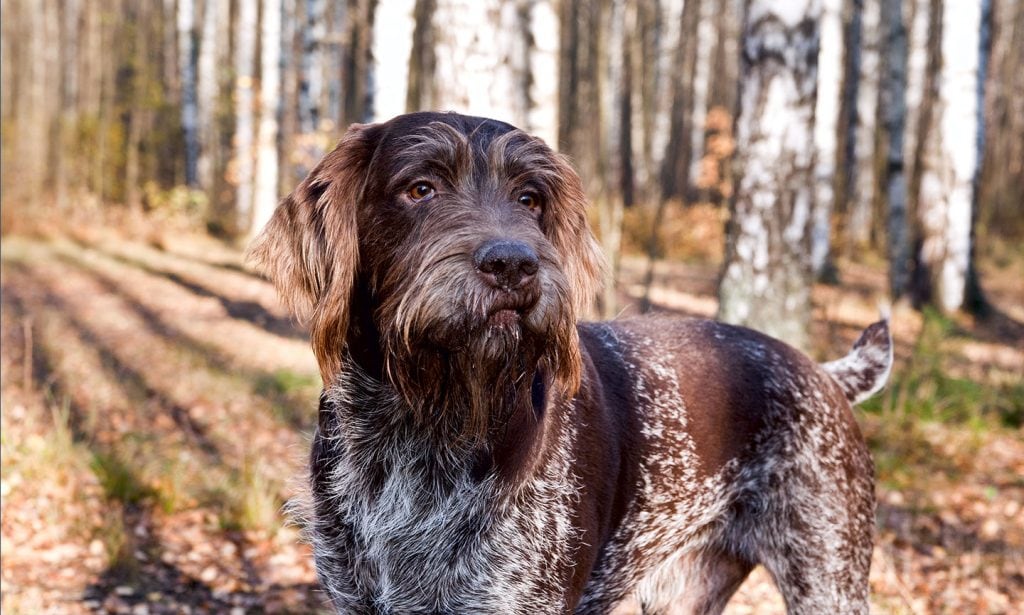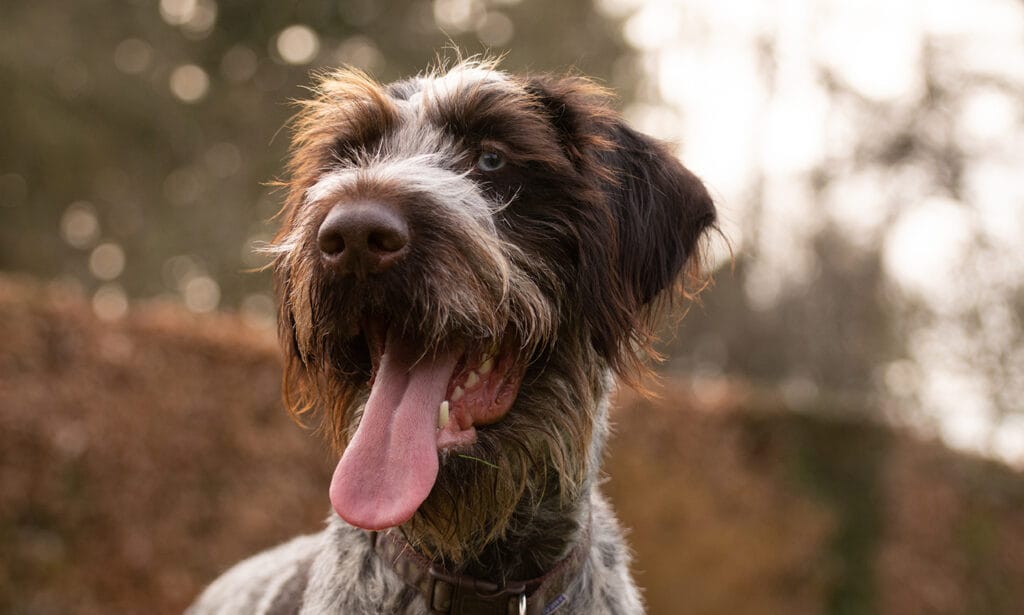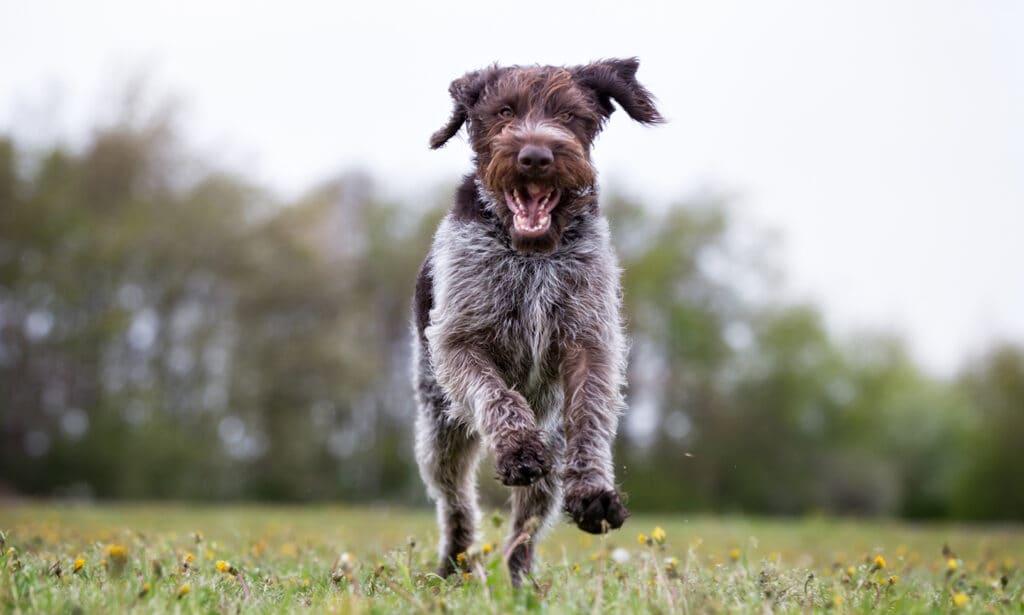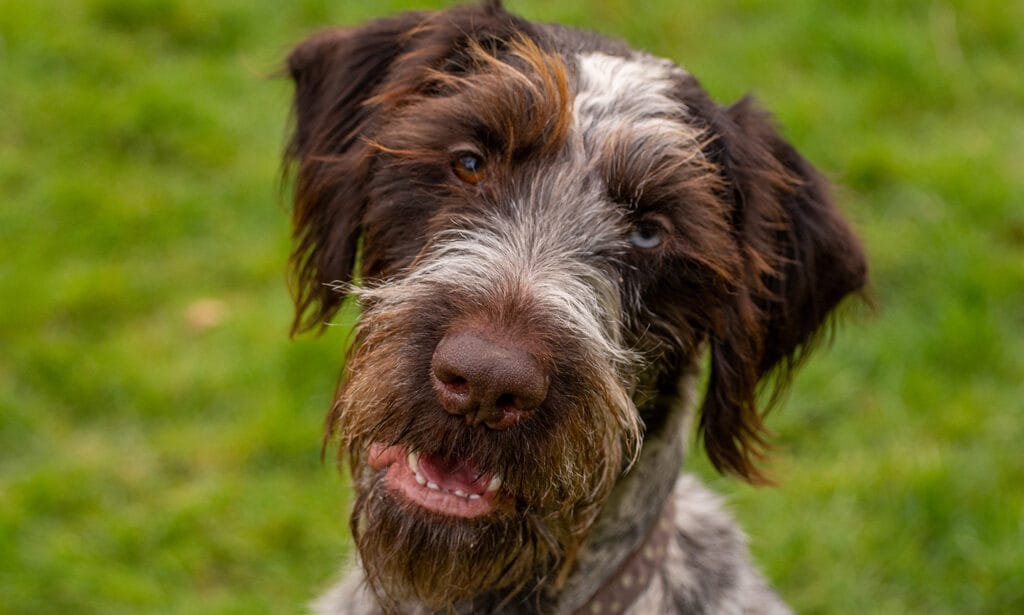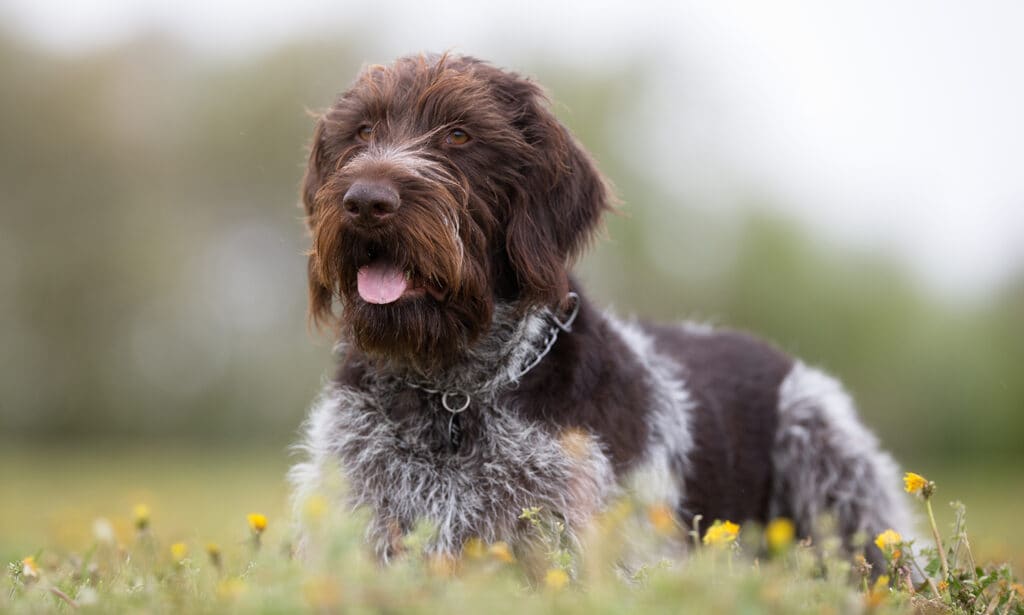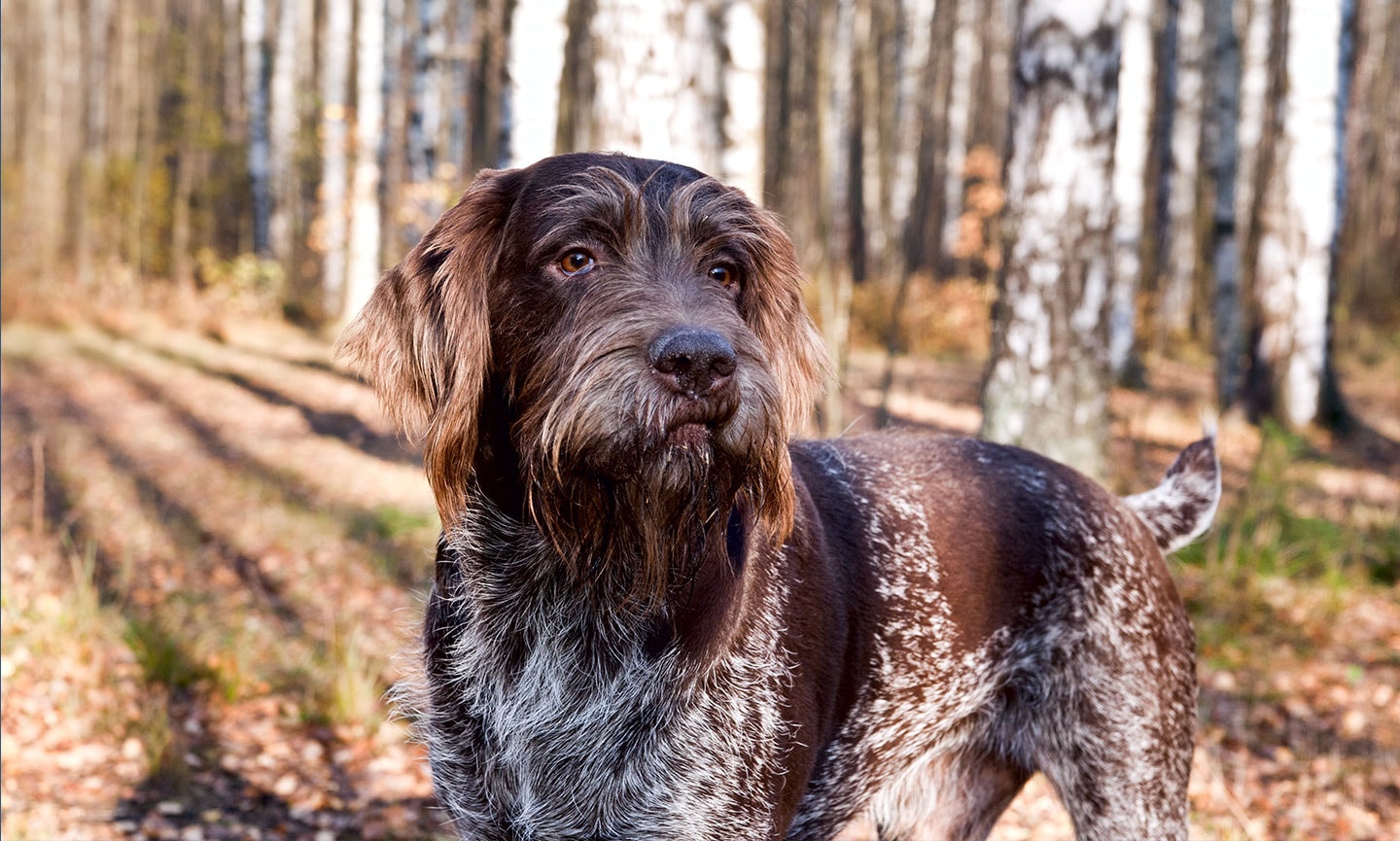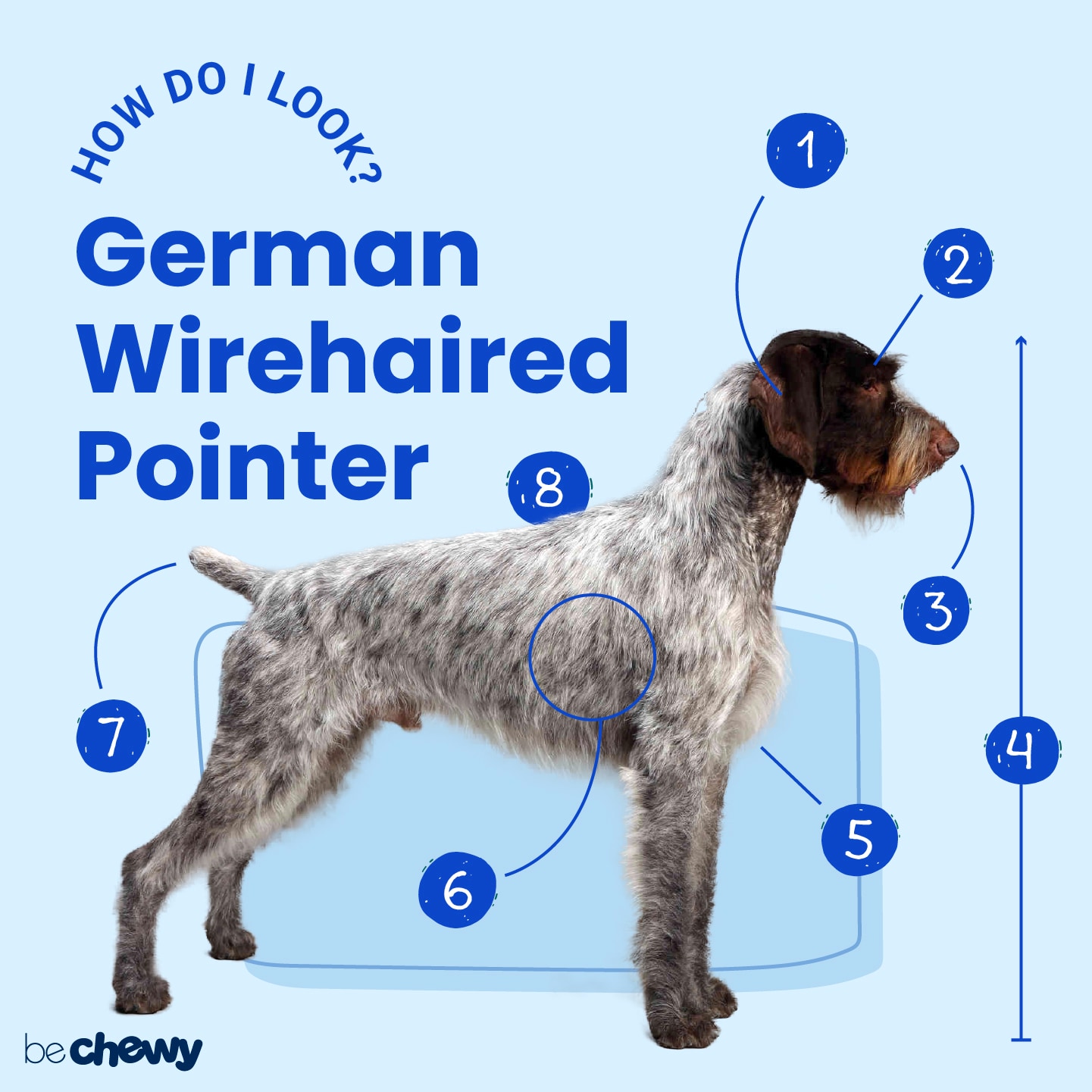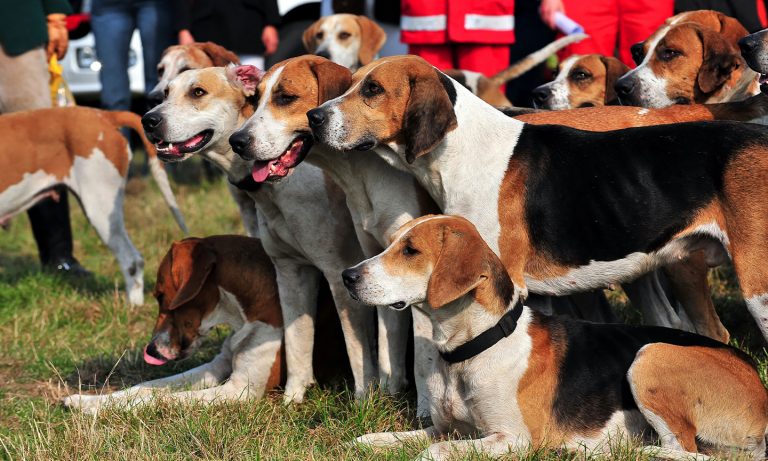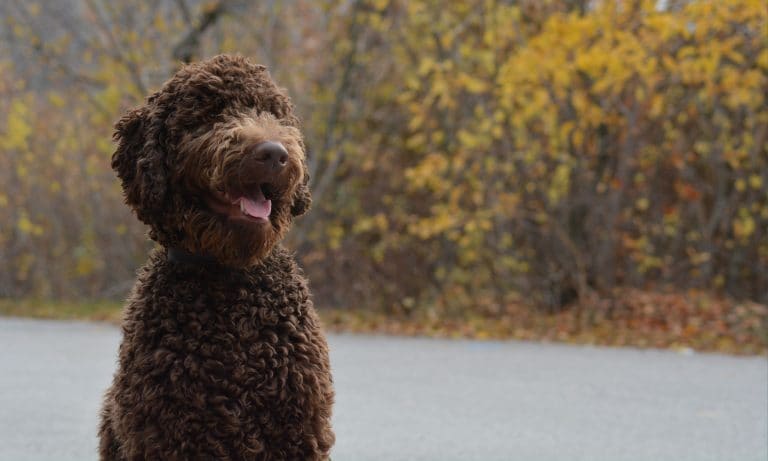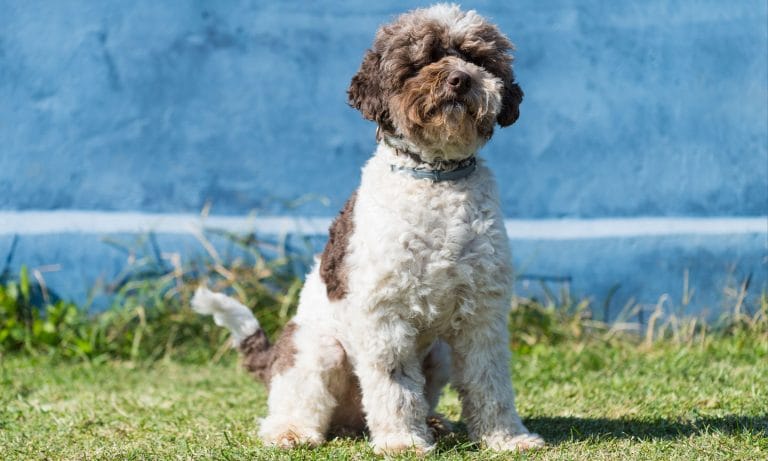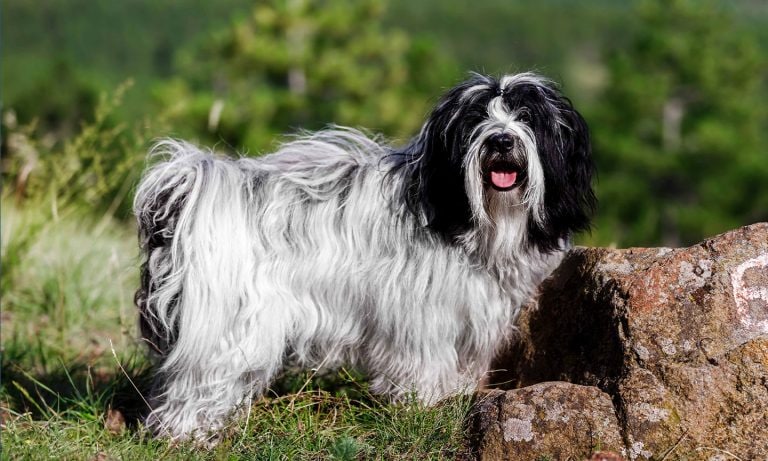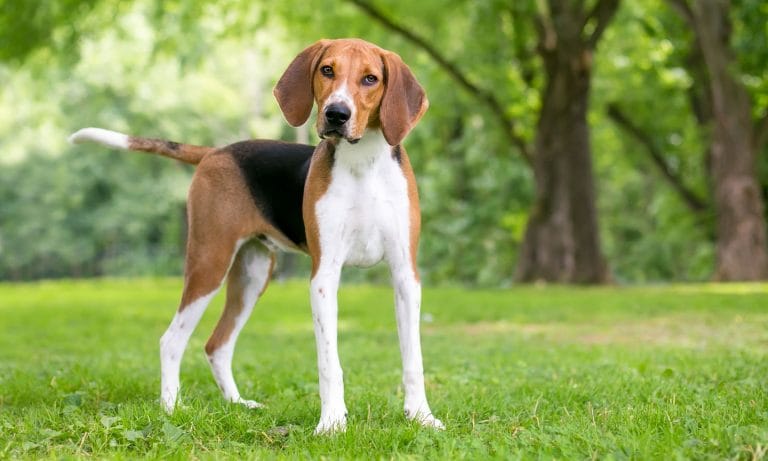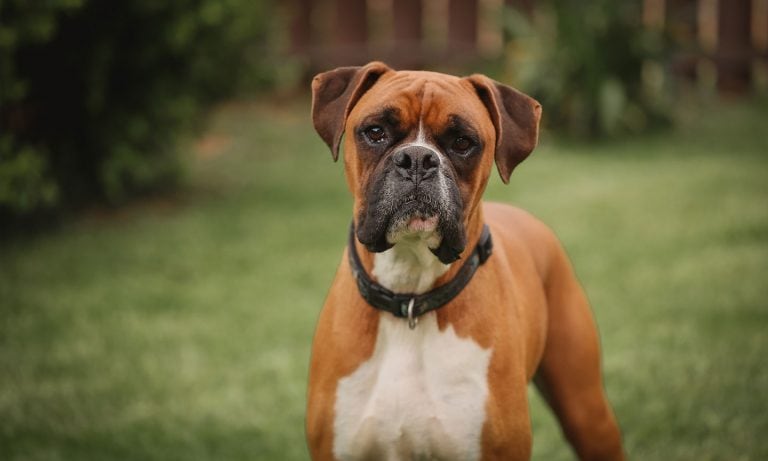Headed out on an adventure? The German Wirehaired Pointer would be more than happy to join you. Lithe, speedy and agile (just like you!), these bushy-browed and bearded beauties are ready to live it up with you in the Great Outdoors. An athletic breed known for their hunting skills, GWPs are ATDs—all-terrain doggos. Whether by land or by sea, they’re eager to hunt down some fun and share in outdoor activities with their favorite person (that’s you of course!).
Breed Snapshot
Temperament:
Lust For LifeLovingActiveCoat Color:
LiverLiver And White
Best For
Because German Wirehaired Pointers are hunting dogs with massive amounts of energy, they thrive with active, experienced pet parents who love to spend time outside. And while these pups have low grooming needs, they do require daily, vigorous exercise. German Wirehaired Pointers have a true lust for life!
German Wirehaired Pointer Temperament
Think of the German Wirehaired Pointer as your family’s camp counselor: They’re here for you whenever you need them and are always willing to listen. But hey, why don’t we have this conversation outside? While we hike. Or perhaps while stalking through a field. Or better yet, let’s talk while we find some ducks to chase. (OK, your camp counselor probably never suggested that.)
The point(er) is, German Wirehaired Pointers love nothing more than to be with their pet parent, especially if you love the Great Outdoors as much as they do. Loyal and loving, they make great family dogs, as long as kids big or little understand and respect the pup’s boundaries. They’re eager to please, and when they’re not engaged in the Very Serious Act of Being Outside Doing All The Things, these pups have a sweet side to their personality that charms everyone they meet.
These friendly pups generally get along well with other dogs and cats if they are raised with them. Other small animals would be well advised to steer clear of German Wirehaired Pointers, because Pointers gotta Point, and they’ll point right at and retrieve any squirrel, rabbit, duck or other creature in the wild—or your backyard.
German Wirehaired Pointers have that classic working dog trait—if they have a job to do (hunting, tracking, sorting laundry), they are On. It. In addition to the jobs they do at home, these pups also have careers in the professional world. With their strong nose skills, they make excellent drug detection dogs and have even found success as therapy dogs, bonding closely to their person. Without a job, they may figure out something else to do to pass the time, and you may not like what they choose. They are highly intelligent and need to keep their brains as active as their bodies.
How to Care for a German Wirehaired Pointer
A German Wirehaired Pointer is loving and loyal but definitely not lazy. While pretty low-maintenance when it comes to their grooming needs, this hunting breed makes up for it with their massive amounts of energy that requires daily, vigorous exercise to burn off. They’re active and intelligent, so keeping their bodies and their brains engaged is essential to their—and your—happiness!
German Wirehaired Pointer Health
The German Wirehaired Pointer breed has a lifespan of 14-16 years, but they can be prone to some health problems. Knowing about them in advance can help keep your pup healthy for longer.
- Bloat: Gastric Dilatation-Volvulus (GDV), commonly known as bloat, is a condition where a dog’s stomach will twist on itself and fill with gas, cutting off blood supply to the stomach. This is an absolute emergency and typically requires emergency surgery.
- Elbow Dysplasia: This is an inherited condition when the bones of the elbow joint don’t fit properly. It can cause pain and difficulty walking and often leads to arthritis. X-rays are needed to confirm the diagnosis, and surgery is often recommended.
- Hip Dysplasia: When the ball and socket of a dog’s hip doesn’t develop and align properly, the bones will grind against each other, limiting your dog’s ability to run, jump, climb stairs and more. Keeping them at a healthy weight and restricting physical exercise can help, but if the case is severe, your dog may need surgery.
- Von Willebrand Disease: This is a bleeding disorder caused by a protein deficiency (von Willebrand factor) that helps platelets stick together and form clots. While most dogs with the disease never show symptoms, some dogs may get a spontaneous nosebleed or have prolonged bleeding after injury or surgery. Sometimes blood transfusions are needed.
- Aortic Stenosis: Aortic stenosis is an inherited heart condition wherein your pup has a partial blood flow obstruction, making their heart work harder to pump blood. This is most often caught during a routine wellness exam as a heart murmur. If a murmur is detected, your veterinarian will likely refer you to a veterinary cardiologist for an echocardiogram (ultrasound of the heart) to determine the cause of the murmur.
- Hypothyroidism: This is a deficiency of thyroid hormone. Signs of this condition can include dry skin and coat, hair loss, susceptibility to other skin diseases, weight gain and lethargy. Your vet can conduct a blood screening test annually to screen for it. Treatment is typically daily medication.
German Wirehaired Pointer History
A close relative of the German Shorthaired Pointer, the German Wirehaired Pointer’s origin story starts in, you guessed it, Germany, where they were bred to be versatile hunting dogs. Other dogs in the German Wirehaired Pointer’s genealogy are believed to include the Wirehaired Pointing Griffon and Polish water dogs.
At first, these dogs were bred simply to keep up with the demand for hunting dogs, but eventually, it transformed into needing a bird dog who could do it all—run through brush, swim through water, stalk through tall grass and more. And because of that, the German Wirehaired Pointer needed a standout feature. Enter their low-maintenance, wiry coat that protects them against the brush and the elements.
The breed crossed the pond to the United States in the 1920s, and the American Kennel Club (AKC) recognized the German Wirehaired Pointer in 1959 as its 113th breed.
Thinking about adding a German Wirehaired Pointer to your family? You can find reputable breeders on the AKC’s website, where the average German Wirehaired Pointer costs $800-$1,200. For that price, you’ll likely get a dog who’s been screened for health and temperament issues and may come with pedigree papers. You can also reach out to German Wirehaired Pointer rescue organizations or keep an eye out for the breed at your local animal shelter to adopt a pup. You can also search Chewy’s database of adoptable dogs in your area.
FAQs
Do German Wirehaired Pointers shed?
Yes, German Wirehaired Pointers shed lightly year-round, so they’re not a great choice for allergy sufferers.
Are German Wirehaired Pointers good family dogs?
Yes, German Wirehaired Pointers are good family dogs—and incredibly loyal. They do well with children, as long as the kiddos are taught to respect the pup’s boundaries.
How big do German Wirehaired Pointers get?
German Wirehaired Pointers don’t get very big; they’re medium dogs. They typically weigh 50-70 pounds and are no taller than 26 inches at the shoulder.
How long do German Wirehaired Pointers live?
German Wirehaired Pointers live 14-16 years, which means plenty of time to make memories with your pup.
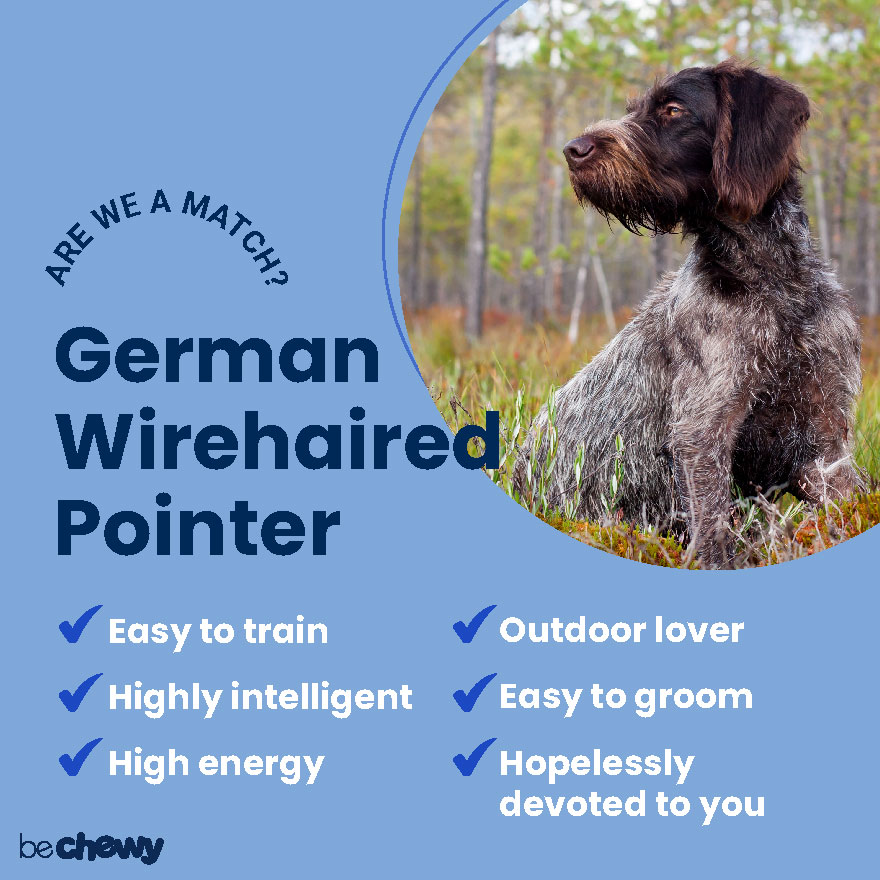
Top Takeaways
German Wirehaired Pointers are devoted dogs who love two things: the freedom of the outdoors and you. If you’re an active pet parent looking for a sidekick to take on your many adventures, the German Wirehaired Pointer is ready and waiting to make those memories with you.
Expert input provided by veterinarian Dr. Ted Vlahos, DVM, of Burnham Park Animal Hospital; and certified dog trainer Gayle Cosentino, CGC, CCGC, owner of It’s a ‘Paws’-Itive Thing dog training.
Photo credit for “How do I look?” New York Times
Breed characteristic ratings provided by Dr. Sarah J. Wooten, DVM, CVJ, a veterinarian at Sheep Draw Veterinary Hospital in Greeley, Colorado; dog trainer and behavior consultant Irith Bloom, CPDT-KSA, CBCC-KA, CDBC, owner of The Sophisticated Dog, LLC, in Los Angeles; and certified animal behavior consultant Amy Shojai, CABC, in Sherman, Texas.
The health content was medically reviewed by Chewy vets.

Search for Adoptable German Wirehaired Pointers Near You
Top German Wirehaired Pointer Names
These are the top German Wirehaired Pointer names as chosen by Chewy's pet parents!
Female Names
- Willow
- Lucy
- Sadie
- Maggie
- Remi
- Molly
- Luna
- Kimber
- Ellie
- Heidi
Male Names
- Gus
- Finn
- Boone
- Hank
- Murphy
- Moose
- Duke
- Cooper
- Maverick
- Winston
Share:
